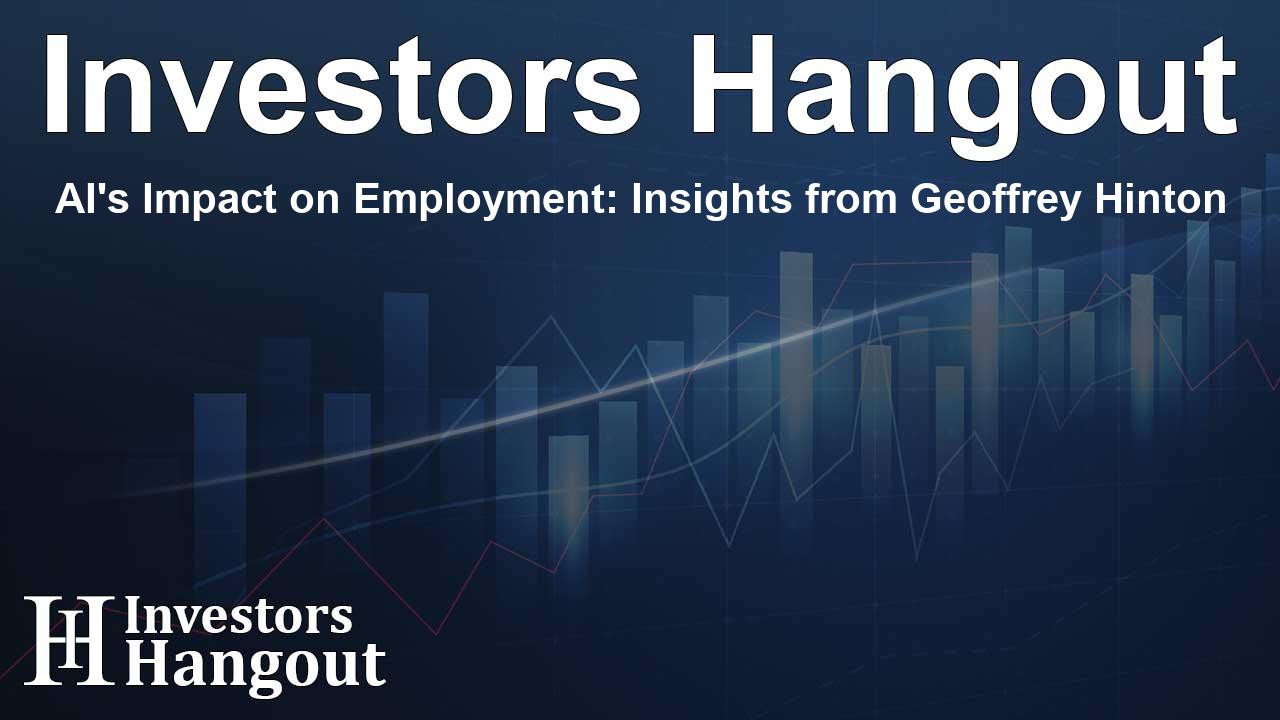AI's Impact on Employment: Insights from Geoffrey Hinton

AI and the Future of Work: A Critical Insight
Geoffrey Hinton, an influential figure known as the godfather of AI, recently expressed concerns about the potential for automation to significantly alter the landscape of employment. He emphasized that as generative AI technologies continue to evolve and permeate various sectors, many traditional roles requiring intellectual labor might vanish, creating a stark new reality for the workforce.
The Value of Medical Professionals in an Automated World
During his appearance on a popular podcast, Hinton emphasized that while many mundane jobs might be replaced by AI, healthcare poses a unique scenario. Despite the rise of automation, demand for medical services is expected to remain robust due to the intrinsic need for human empathy and patient care.
Can Healthcare withstand the AI Wave?
Hinton argued that clinical work is inherently fluid; as healthcare delivery becomes more efficient, the demand for services tends to rise rather than fall. This sentiment suggests a pivotal role for healthcare professionals even amid advancing technology, as they not only administer necessary care but also build meaningful relationships with patients.
Conflicting Views on AI's Impact on Employment
The discourse surrounding AI's impact on job security is divided among experts. For instance, Dario Amodei, CEO of Anthropic, predicted substantial job losses across numerous sectors, potentially involving half of entry-level white-collar jobs in the near future. Contrast this with perspectives from industry leaders like Marc Benioff, CEO of Salesforce, who advocates for the opposite, suggesting that AI advancements are seen as tools for better productivity rather than threats to employment.
Industry Responses to AI Automation
Recent research from Goldman Sachs indicates a significant opportunity for generative AI to automate a vast portion of tasks across industries, potentially bolstering global output by approximately $7 trillion. Such potential suggests a fundamental shift in how jobs evolve rather than simply diminish.
Healthcare as an Exception to Automation Trends
In further discussions, Hinton highlighted that healthcare is likely to thrive amidst automation trends. Despite rising clinical efficiencies, healthcare professionals will not face the same fate as those in more vulnerable sectors. The demand for human-driven empathy in medical settings remains critical.
The Essentials Behind Medical Workforce Growth
Data trends predict concerted net hiring in healthcare fields amidst fears of automation-driven unemployment in other sectors. Roles that require clinical judgment and human interaction, including nursing and companion services, will likely retain resilience against automation forces.
Projections for Future Workforce Needs
Recent reports project significant growth within healthcare job markets, underpinned by ongoing studies suggesting automation may displace a portion of jobs, yet simultaneously create new opportunities in emerging sectors like STEM and clean energy. As industries pivot towards more complex labor requirements, healthcare likely stands poised to expand its workforce significantly.
The Necessity for Blueprinting Human Interaction in Care
Some leaders in technology, like Demis Hassabis, CEO of Google DeepMind, articulated the irreplaceable human aspects in healthcare which require compassion and the ability to engage emotionally with patients. These qualities remain beyond the current capacity of AI, fostering an expectation for human roles to continue thriving.
A Growing Investment in Health-Tech Innovation
The financial landscape reflects a strong belief in healthcare's transformative potential, as investments in health-tech startups saw remarkable activity, drawing in approximately $6.4 billion within the first half of the year. This confidence points to substantial faith in the industry's resilience and growth.
Create Opportunities with Emerging Technologies
In an age where automation is reshaping various aspects of business operations, it is crucial to understand how those changes can be aligned with effective workplace training and human creativity. Reports show that around 12% of employees already leverage generative AI for substantial parts of their work, indicating a pressing need for strategic guidance from leadership to harness AI's potential effectively.
Frequently Asked Questions
What does Geoffrey Hinton predict for job security in the age of AI?
Geoffrey Hinton warns that automation may endanger many intellectual roles, prompting the need for higher-level skills.
How does Hinton view the healthcare industry amidst automation?
Hinton believes healthcare is unique because it demands human touch and empathy, which AI cannot replicate.
What is the outlook for job creation in healthcare?
Reports indicate continued hiring growth in healthcare despite the threat of automation in other sectors.
How does AI impact productivity according to industry leaders?
Industry leaders argue that AI technologies may enhance productivity rather than reduce employment levels.
What investment trends are shaping the healthcare sector?
Health-tech startups are witnessing significant investments, demonstrating confidence in the healthcare industry's future growth.
About The Author
Contact Evelyn Baker privately here. Or send an email with ATTN: Evelyn Baker as the subject to contact@investorshangout.com.
About Investors Hangout
Investors Hangout is a leading online stock forum for financial discussion and learning, offering a wide range of free tools and resources. It draws in traders of all levels, who exchange market knowledge, investigate trading tactics, and keep an eye on industry developments in real time. Featuring financial articles, stock message boards, quotes, charts, company profiles, and live news updates. Through cooperative learning and a wealth of informational resources, it helps users from novices creating their first portfolios to experts honing their techniques. Join Investors Hangout today: https://investorshangout.com/
The content of this article is based on factual, publicly available information and does not represent legal, financial, or investment advice. Investors Hangout does not offer financial advice, and the author is not a licensed financial advisor. Consult a qualified advisor before making any financial or investment decisions based on this article. This article should not be considered advice to purchase, sell, or hold any securities or other investments. If any of the material provided here is inaccurate, please contact us for corrections.
